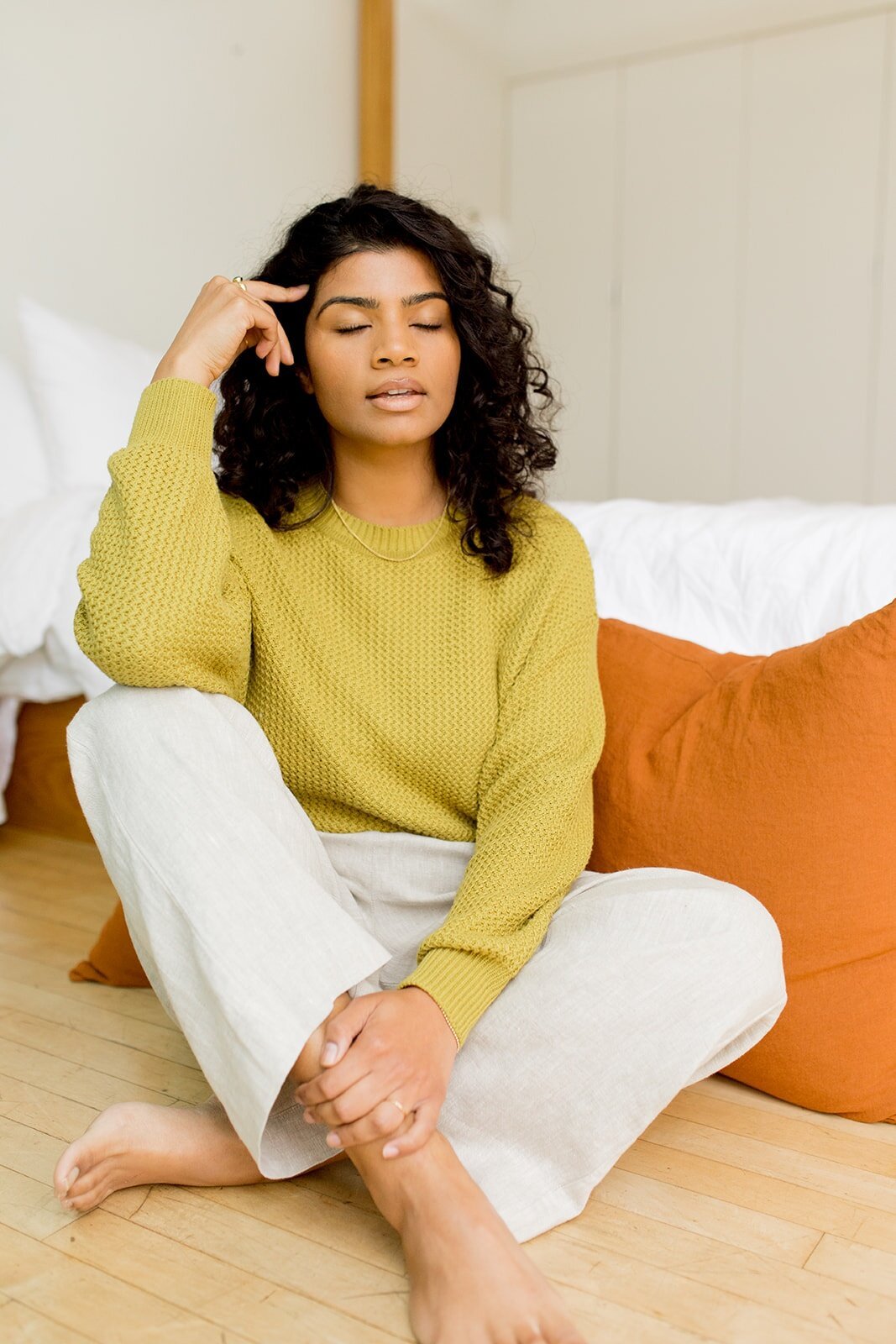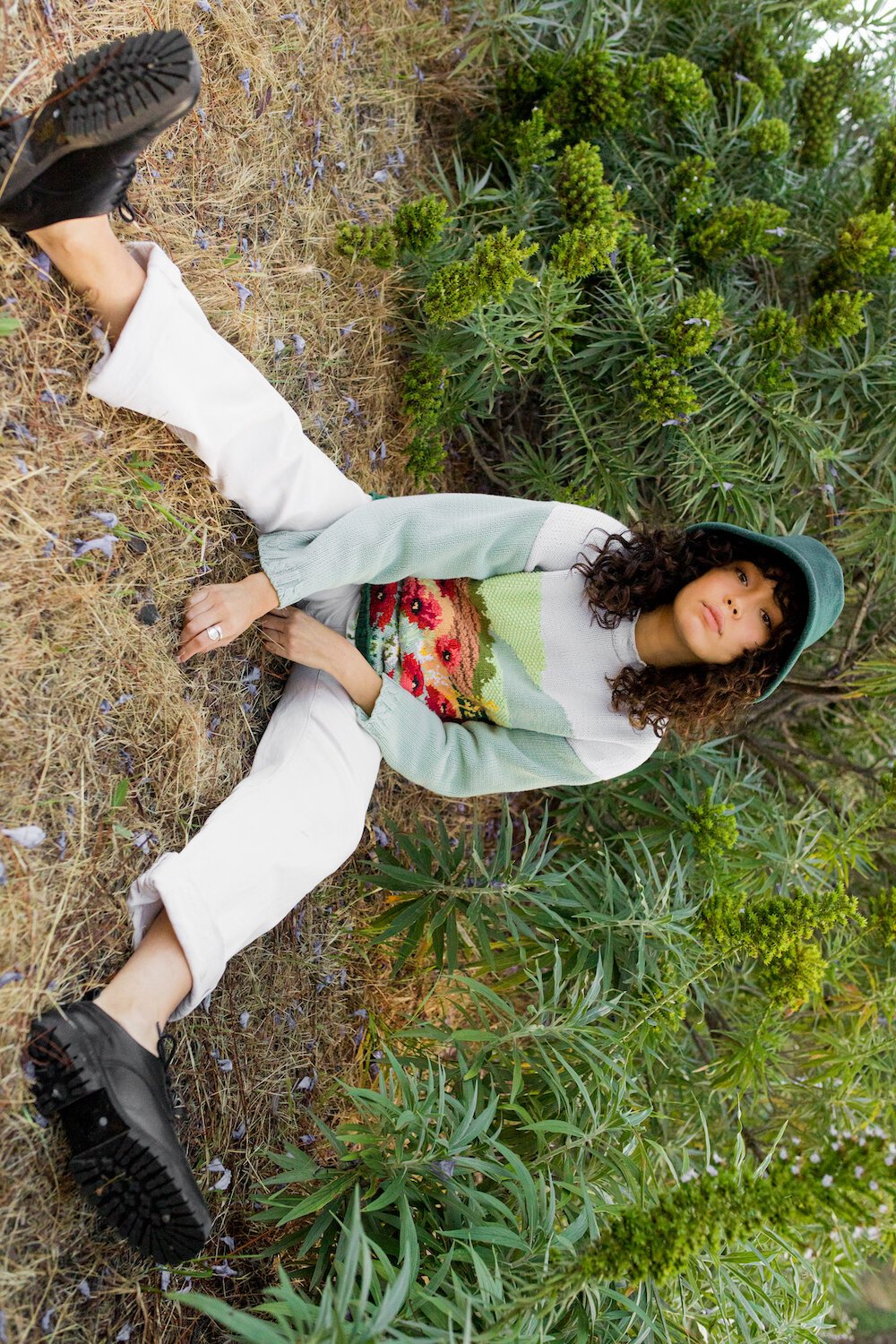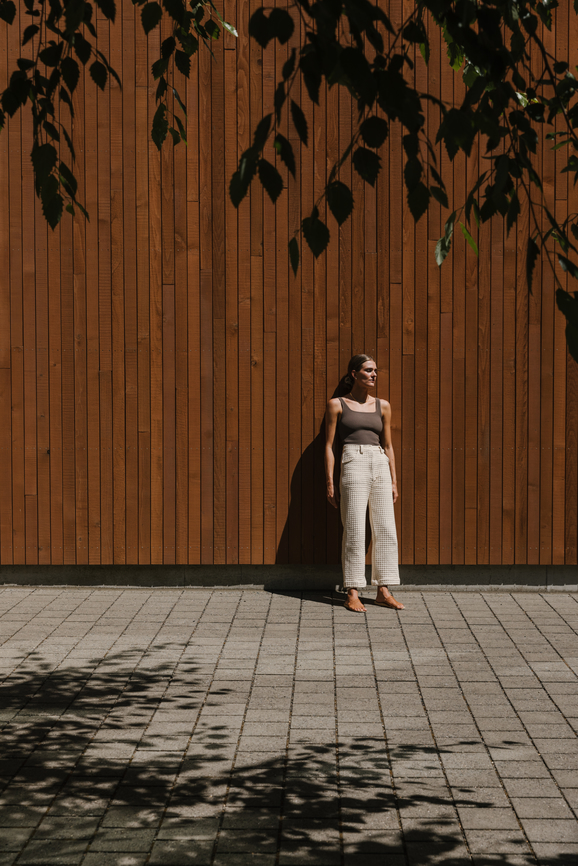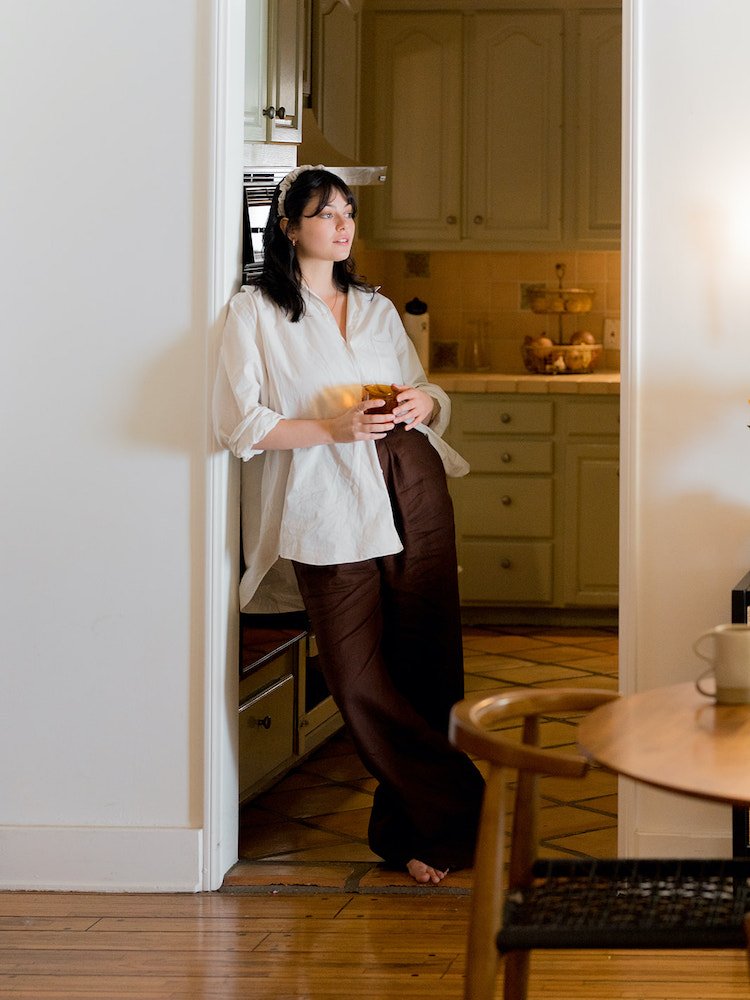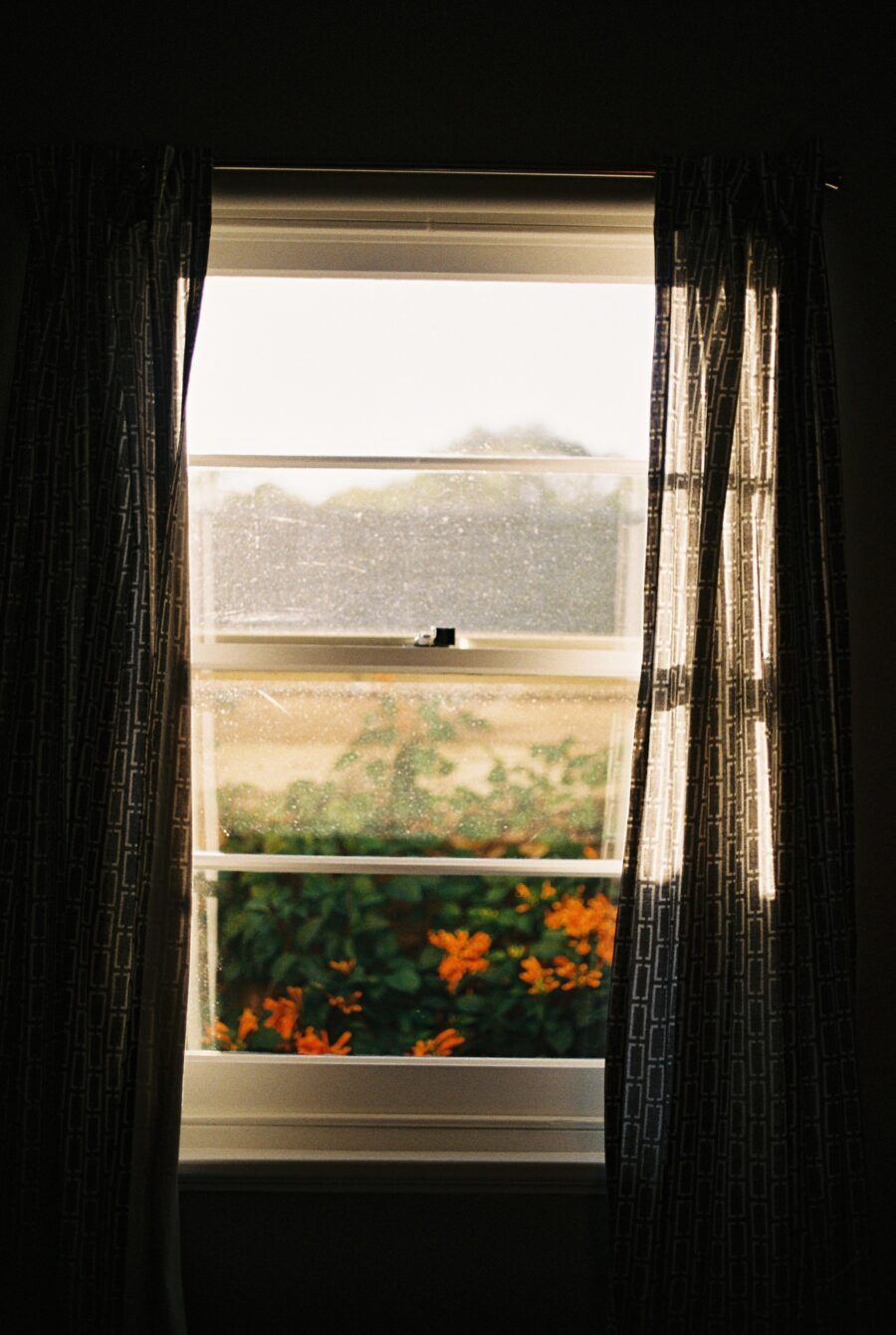
How To Admit You’re Not Okay (And Other Lessons I’ve Learned From Infertility)
I always wanted to be a mother, I just didn’t know when. On the weekend of my 30th birthday, I ate crème brûlée in a hotel bed and applauded myself for taking a decade to nurture my desires. My husband and I did everything to prevent pregnancy in our 20s. We traveled, lived abroad, went to grad school, invested in our careers. A baby was always in the future, but it was a future we didn’t want right away. Only when the timing was right would it be ours for the taking, or so we assumed.
I scheduled an appointment to have my IUD removed on a brisk November afternoon, two months after turning 30. I scoured the internet for the best prenatal vitamins and downloaded an app to track my ovulation cycles. On New Year’s Eve, giddy on champagne, we had unprotected sex for the first time. “What if?” we both whispered through the night and into the next morning. When my period arrived a few weeks later, the pang of sadness was hardly noticeable. I knew it could take time. But then six months went by. Then a year. The what if’s morphed from wonder into concern. “What if I get pregnant this month?” turned into “What if there’s something wrong?”
“What if I get pregnant this month?” turned into “What if there’s something wrong?”
It’s estimated that one in six couples experience infertility worldwide, according to the World Health Organization. I wish I would have never had to learn this statistic. Our official diagnosis is unexplained infertility, though anyone who has been a part of this world knows that lack of funding and research is the only reason infertility is ever “unexplained.” My husband and I have become a case that has left doctors scratching their heads and ordering more tests. Everything is always “normal” and “within range.” From natural remedies like acupuncture and herbs to more invasive procedures like HSGs and fertility medications, we’ve done it all outside of in vitro fertilization. While some doctors have been helpful, others have recommended we just “have more sex.” I wish I were kidding.
This month marks exactly two and a half years since we began trying to get pregnant. It also marks eleven months since our only pregnancy, which resulted in an early miscarriage. For the longest time, I held the hurt close to my chest, only sharing with immediate family and a few friends. But even then, I remained guarded, limiting how much I shared and how frequently. When your life becomes consumed by grief, you fear your darkness will stain the otherwise joyful lives of others.
“It’s estimated that one in six couples experience infertility worldwide, according to the World Health Organization.”
Mostly though, I didn’t know how to talk about the pain because I didn’t know how to process it alone. I learned how to trick myself into hope, to force optimism as a facade. This often looked like channeling despair into anger against the medical system and resolving that I would figure out why I was infertile on my own. I buried myself in books and journal studies, spent hours reading others’ stories on Reddit threads. An infertility diagnosis does not only mean an empty womb—the emotional isolation can be more grueling than the physical pain of tests, procedures, and living with a body that can’t conceive. The hollowness consumes body, mind, and soul.
*
This is the first time I’ve written about infertility in such a public way. It feels both liberating and terrifying. There is no turning back once you name your experiences, once you acknowledge your hurt and the existence of grief. Being honest with the world means confronting the truth for yourself, which, once out in the open, becomes undeniable. The hurt now lives outside your body, appearing like a new limb. The narrative you so desperately wished to ignore slips through your fingers and becomes its own kind of creature. The pain just is. This is where you’re at.
In 30 months of infertility, I have learned a few things: First, you are never okay, even if you trick yourself into thinking otherwise. You can be strong while simultaneously struggling. To struggle is to survive, and that requires every ounce of strength.
I’ve also learned that asking for help feels hard because it is hard. While humans are hardwired for empathy, modern societies have long encouraged us to figure things out for ourselves—I can’t tell you how many times I heard the expression “pull yourself up by your bootstraps” as a child.
Help has saved me so many times in the past few years. I’ve had to learn how to pick up the phone and call a friend despite the internal voices telling me I’m a burden. Help has also looked like finding safe spaces and people to process the pain—therapists, friends, strangers on the internet who understand. After the miscarriage last summer, which lasted six weeks and landed me in the emergency room, something in my brain snapped. I finally contacted a professional for a prescription to manage the anxiety. I’ll never forget that afternoon, sitting on the side of our bed, the little pill in my palm. I was sobbing, my husband holding my hand. I so badly wanted to feel better but hated myself for not being strong enough to pull through alone.
“In some ways, when I can step back and see the bigger picture, which I’ll admit is very rare, I recognize how beautiful and complex this all is.”
In some ways, when I can step back and see the bigger picture, which I’ll admit is very rare, I recognize how beautiful and complex this all is. Each of us has our struggles, valleys through which we must walk, some of us for many miles. But it’s when we admit the truth—that we are not okay—that we learn how to keep living amidst the pain. This has been the hardest lesson for me: waking every morning with grief by my side and still getting out of bed. Infertility is no longer a season of my life but a daily companion. I have had to learn to live alongside it, just like I have had to learn how to rely on my community and loved ones to carry me when I can’t carry myself.
I don’t know how this story will end. Our next steps likely include IVF or other methods of growing our family. Everything feels raw and unstable and entirely outside of my control. What I do know is that learning to admit I’m not okay has helped. It doesn’t take away the pain, but it allows me to breathe a bit easier.
When we name our truths, we lighten our loads, even if only by a little. Our shoulders relax, and the tears that have needed to flow finally do. We are honest for the very first time in a while. Maybe it doesn’t change our circumstances. Maybe it doesn’t feel like it’s helpful. But the truth is out. We care for ourselves by being honest about where we are at. That has to count for something, I hope.
Kayti Christian is the Managing Editor at The Good Trade. She has a Master’s in Nonfiction Writing from the University of London and is the creator of Feelings Not Aside, a newsletter for sensitive people.

